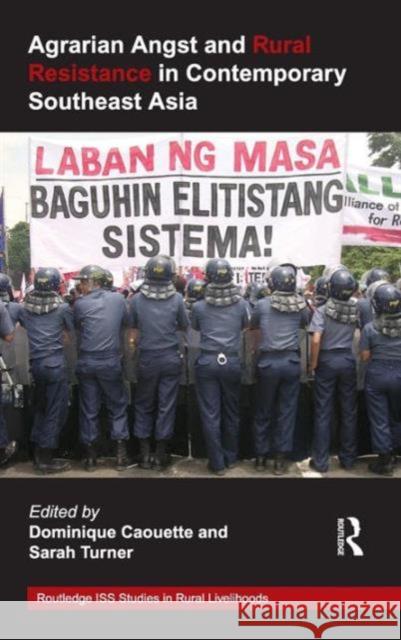Agrarian Angst and Rural Resistance in Contemporary Southeast Asia » książka
Agrarian Angst and Rural Resistance in Contemporary Southeast Asia
ISBN-13: 9780415548380 / Angielski / Twarda / 2009 / 310 str.
Agrarian Angst and Rural Resistance in Contemporary Southeast Asia
ISBN-13: 9780415548380 / Angielski / Twarda / 2009 / 310 str.
(netto: 195,06 VAT: 5%)
Najniższa cena z 30 dni: 186,33
ok. 16-18 dni roboczych.
Darmowa dostawa!
Agrarian transformations, market integration and globalization processes are impacting upon rural Southeast Asia with increasingly complex and diverse consequences. In response, local inhabitants are devising a broad range of resistance measures that they feel will best protect or improve their livelihoods, ensure greater social justice and equity, or allow them to just be left alone. This book develops a multi-scalar approach to examine such resistance occurring in relation to agrarian transformations in the Southeast Asian region. The contributors take a fresh look at the diversity of sites of struggle and the combinations of resistance measures being utilized in contemporary Southeast Asia. They reveal that open public conflicts and debates are taking place between dominators and the oppressed, at the same time as covert critiques of power and everyday forms of resistance. The book shows how resistance measures are context contingent, shaped by different world views, and shift according to local circumstances, the opening and closing of political opportunity structures, and the historical peculiarities of resistance dynamics. By providing new conceptual approaches and illustrative case studies that cut across scales and forms, this book will be of interest to academics and students in comparative politics, sociology, human geography, environmental studies, cultural anthropology and Southeast Asian studies. It will also help to further debate and action among academics, activists and policymakers.
Agrarian transformations, market integration and globalization processes are impacting upon rural Southeast Asia with increasingly complex and diverse consequences. In response, local citizens are devising a broad range of resistance measures that they feel will best protect or improve their livelihoods, ensure greater social justice and equity, or allow them to just be left alone. This book develops a multi-scalar approach to examine resistance occurring in relation to agrarian transformations in the Southeast Asian region. We move the boundaries of scale from previous works to include not only micro-level resistance tactics such as those documented by James Scott in his 1985 book Weapons of the Weak: Everyday Forms of Peasant Resistance; but also national, regional and transnational acts of resistance and defiance against policies and activities often linked to agro-food industries, global market integration and political domination.
The contributors take a fresh look at the diversity of sites of struggle and the combinations of resistance measures being utilised in contemporary Southeast Asia. They reveal that open public conflicts and debates are taking place between dominators and the oppressed, at the same time as covert critiques of power and everyday forms of resistance. The authors show how resistance measures are context contingent, shaped by different world views, and shift according to local circumstances, the opening and closing of political opportunity structures, and the historical peculiarities of resistance dynamics.











